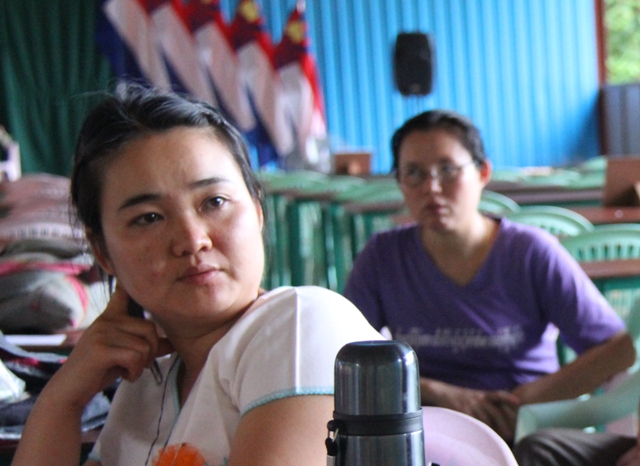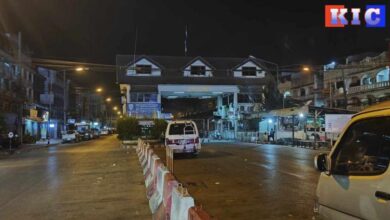War and Peace – A Woman’s View – Part 2

Naw K’nyaw Paw, an executive member of the Karen Women’s Organization, in part two of and exclusive interview with Karen News talks about the impact of drugs and gambling on family life and the added stresses women now face in Burma’s changing political landscape.
Karen Women Are A Part Of The Struggle To Free Our People
Karen women must participate in the peace process from the beginning to the end because we are half of the population and during the conflict we suffered. We are a part of the struggle to free our people. If we look back 10 to 20 years, during the very intense conflicts, women are the ones who stood up to defend their people. The women village chiefs stood up to protect their people so that the Burma Army did not abuse them. During the conflict women were actively involved, so during the peace building process women should also participate. As women, we are part of society and as women we want our views to be heard and our leadership to be recognized. We should be involved in the ceasefire process and during the peace building process.
There Is No Concrete Peace Agreement
Our view on the current peace process is that the peace negotiation/building should be done carefully and concretely, step by step.
What we see now is the current ceasefire process between KNU and the Burmese government is only preliminary and there is no concrete agreement.
We see the Burmese military taking advantage of the ceasefire and increasing their military power, expanding their governing areas into our areas – this is a big concern.
For the Karen National Union, if they are not cautions and are not prepared – our ultimate goal for self-determination, ethnic equality and recognition of our identity will be lost.
The ceasefire is just the first step and it is good, but this first step must be reviewed and done carefully so our people do not suffer and so we do not fall to the trickery of the government.
The KWO supports the KNU’s four-step peace process that includes a ceasefire, a sustainable ceasefire, political dialogue and participation in the political process.
The process should be conducted carefully and concretely.
Peace building is not only between one government and one person. Those who have the power to negotiate the peace process must include community based organizations and women’s organizations.
If we build peace that includes everyone, then everyone will feel that they own the process and peace building will be more sustainable.
When the peace process goes step-by-step in an organized and concrete manner, there will be less mistakes, less blaming and less misunderstandings.
We also want women to be interested in politics and part of the struggle to achieve equality with men.
Women are equally as capable as men.
We would like to encourage women to be more involved in changes in community, participate in the struggle to be free from oppression and the fight for self determination and equality in Burma.
Refugee Repatriation Needs To Be Dignified And Safe
The return of refugees should follow the international principles. Refugees should not be forced to return and should be allowed to return in safety and dignity.
This means that they should have physical safety so they do not experience harm, material safety so they can earn a livelihood and legal safety so they can seek legal assistance when their rights are abused or when they suffer.
There should be laws that protect refugees.
The KWO sees that our Karen people have been fighting for self-determination for over 60 years.
We now need to start practicing self-determination for the small things. We want the international community to listen to the voices from the community, refugee voices, and women’s voices. The whole process of refugee return, from the discussions of refugee return until refugees arrive back, should include women. This will ensure that the return is done effectively, the community is leading the process and refugees will return [home] with dignity.




